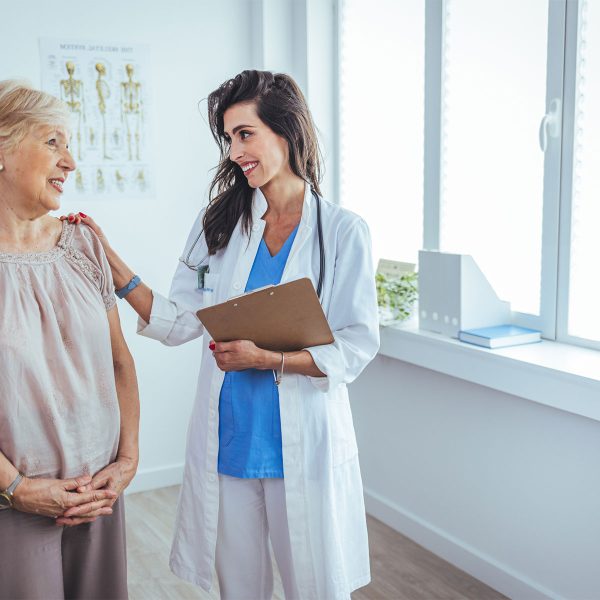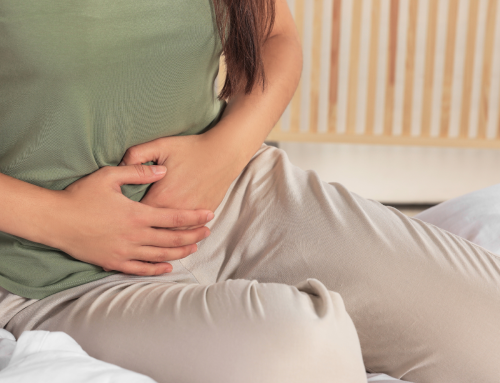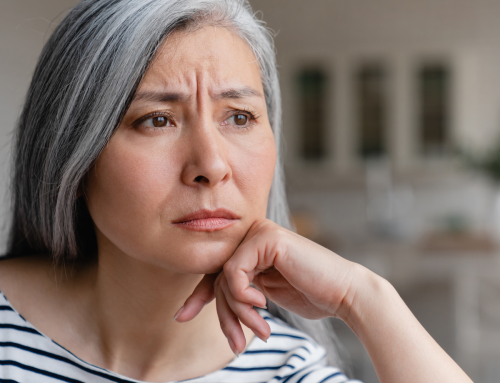
There are a few certainties in life. For women, one of them is menopause. The time of life when it happens can vary from woman to woman, so can the symptoms that we suffer through and how long they last. But all women will at some point go through menopause.
Let’s be honest. It’s not a pleasant experience, but forewarned is forearmed. The more you know about what will or is happening to your body, the better you can deal with it. Despite the fact that 50% of the population has always gone through menopause, it’s only now that people are actually discussing it. Many facts are being shared, but there’s also a lot of misinformation going around. We hope this short post will help dispel some of the myths and empower you with real information for taking control of your health and your life.
We’ll start with the basics.
Menopause is the natural biological process that marks the end of a woman’s menstrual cycle and fertility. Typically, it happens in your late 40s to early 50s, but that can vary. Menopause is officially confirmed when you’ve gone 12 consecutive months without a period. Menopause results from aging ovaries, reducing the production of hormones, especially estrogen and progesterone.
There are three stages that you’ll go through:
Stage 1: Perimenopause
This phase usually begins several years before menopause, when the ovaries gradually produce less estrogen. Perimenopause lasts up until menopause, the point when the ovaries stop releasing eggs. In the last 1 to 2 years of perimenopause, the decrease in estrogen accelerates. Many women experience menopause symptoms during this time.
Stage 2: Menopause
This is the point when a woman has not had her period for one year. At this stage, the ovaries have stopped releasing eggs and producing most of their estrogen.
Stage 3: Postmenopause
These are the years after menopause. During this stage, menopausal symptoms, such as hot flashes, may ease for many women. However, health risks related to the loss of estrogen rise as the woman ages.
The symptoms of menopause can vary in terms of the amount that you have and in their severity. Common symptoms include:
- Hot flashes
- Night sweats
- Mood changes
- Sleep disturbances
- Vaginal dryness and discomfort during sexual activity
- Weight gain and slowed metabolism
- Thinning hair and dry skin
- Loss of breast fullness
When symptoms seem like more than just symptoms, you could have Genitourinary Syndrome of Menopause or what used to be called vaginal atrophy. This covers a wide range of symptoms associated with vaginal health, but the good news is it’s probably the easiest of the consequences of menopause to treat.
The lack of estrogen causes the lining of the vagina to change in the same way that your skin ages. The ability for your skin to repair and regenerate decreases as you get older. Remove the estrogen that has always been there, and you start to suffer from the results. The changes women with GSM experience most often are the ones that are the hardest to talk, like:
- Genital dryness
- Decreased lubrication during sex
- Discomfort or pain during sex
- Post sex bleeding
- Decreased arousal
- Irritation or burning of the vulva or vagina
- A constant need to go to the toilet and pain when you do
More than 65% of women who go through menopause suffer from these symptoms. Thankfully, more people and doctors are discussing the symptoms, and more work is being done to investigate why GSM happens and how it can be treated. The most common treatment has always been estrogen gel, but it can have side effects, and its use has decreased.
Recent work involving Nobel prize-winning technology has shown the symptoms of GSM can be relieved by understanding stem cells and biological responses to menopause. After extensive clinical research by some of the experts in this field, V-HealthTM was developed and launched specifically for the treatment of GSM without using hormones. V-Health uses growth factors to regenerate, repair, and improve the lining of the vagina. When used over a period of 12 weeks, it can provide women suffering from these debilitating symptoms life-changing relief.






